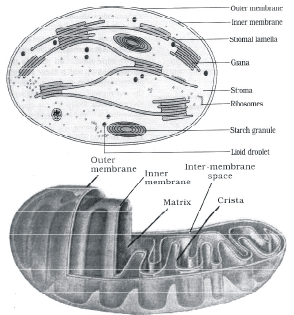31 Years NEET Previous Year Questions: Cell: The Unit of Life - 3 - NEET MCQ
25 Questions MCQ Test - 31 Years NEET Previous Year Questions: Cell: The Unit of Life - 3
In fluid mosaic model of plasma membrane
[2002]
Which of the following occurs more than one and less than five in a chromosome?
[2002]
Ribosomes are produced in
[2002]
Mitotic spindle is mainly composed of which protein?
[2002]
In which one of the following is nitrogen not a constituent ?
[2003]
Flagella of prokaryotic and eukaryotic cells differ in
[2004]
In chloroplasts, chlorophyll is present in the
[2004]
The main organelle involved in modification and routing of newly synthesized proteins to their destinations is
[2005]
According to widely accepted “fluid mosaic model” cell membranes are semi-fluid, where lipids and integral proteins can diffuse randomly. In recent years, this model has been modified in several respects. In this regard, which of the following statements is incorrect?
[2005]
A student wishes to study the cell structure under a light microscope having 10X eyepice and 45X objective. He should illuminate the object by which one of the following colours of light so as to get the best possible resolution?
[2005]
Centromere is required for:
[2005]
Protein synthesis in an animal cell occurs
[2005]
Which of the following statement regarding mitochondrial membrane is not correct ?
[2006]
A major break through in the studies of cells came with the development of electron microscope. This is because
[2006]
Select the wrong statement from the following
[2007]
Which one of the following is not a constituent of cell membrane?
[2007]
Keeping in view the fluid mosaic model for the structure of cell membrane, which one of the following statements is correct with respect to the movement of lipids and proteins from one lipid monolayer to the other (described as flipflop movement)?
Polysome is formed by
Cellulose is the major component of cell walls of
[2008]
The two sub-units of ribosome remain united a critical ion level of
[2008]
Vacuole in a plant cell
[2008]
Plasmodesmata are:
[2009]
Cytoskeleton is made up of:
[2009]
Stroma in the chloroplasts of higher plant contains:
[2009]
Middle lamella is composed mainly of:
[2009]















